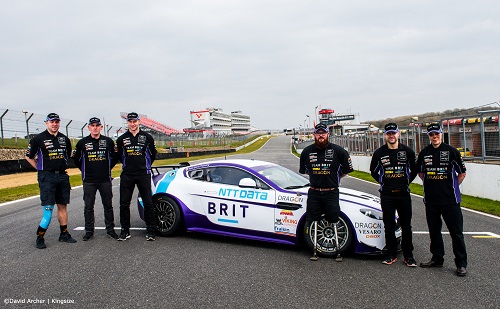Team BRIT and MME Motorsport use Festo automation to put disabled drivers in control
13 Dec 2018

Team BRIT and MME Motorsport have developed a new hand control technology that enables disabled and able-bodied drivers to use the same car. Described as the world’s most technologically advanced hand controls, the system uses pneumatic technology donated by industrial automation specialist and BFPA member Festo to enable the steering, brakes, clutch, throttle and gears to be controlled using hands alone.
Steve Sands says “Festo GB is very happy to support Team BRIT in the development of their ground-breaking hand control system, aimed at making motorsport more inclusive for people with disabilities. The team has worked wonders integrating proportional pneumatic controls to put disabled drivers in total control of the car.”
Team BRIT is a competitive racing team, not a charity, which races against teams of able-bodied drivers on a totally level playing field — something that no other sport can offer.
Explains Dave Player, Founder of Team BRIT: “For the drivers, being able to participate in endurance racing is genuinely life-changing; it is a tool for rehabilitation and recovery within their ethos of being able to believe and achieve. It’s the pursuit of speed, breaking of boundaries and the teamwork that makes the sport so engaging and the drivers can push themselves physically whilst recovering mentally.”
Developed with Slovenian motorsports expert Marko Mlakar, and implemented and engineered by Team BRIT’s specialist engineers, the new controls introduce an electronic braking system, making racing easier and safer for drivers who are unable to use their legs. Fully adaptable, technologically sound and proven at the highest level, the hand controls mean that every driver racing on the track is equal, with no-one at a disadvantage due to an amputation, injury or congenital defect.
Furthermore, the specially adapted steering wheel can be removed, unplugged and replaced with a normal steering wheel so the car reverts to standard specification. This could mean that, in future, production of vehicles suitable for disabled drivers becomes simpler and less expensive, bringing mobility to millions.
The new set-up is easy to replicate for use on simulators too, so disabled people can enjoy e-racing as well as driver development. It is also suitable for use on road cars, which opens up the market for track day experiences, as well as car hire and test drives in supercars for people with physical impairments.
Team BRIT has already achieved a lot. Now they are ready to make history by becoming the first all-disabled team to participate in the Le Mans 24-hour race – and the evolution of the special hand controls will go a long way towards making this ambition achievable. Team BRIT is currently seeking formal safety approval and homologation for the controls from the Motor Sports Association (MSA), motorsport’s governing body.

